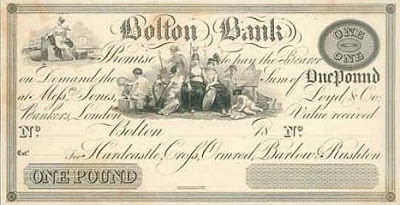The Lords and Ladies
The Importance of Being Earnest is riddled (lightly) with references to 'Lord' this and 'Lady' that, 'Honorable' and 'Sir' and so on. A fairly typical element of a 'comedy of manners' is that it deals with at least a few characters of the 'upper class', and your standard modern historical romance has invented a Duke (they're the most popular, currently) or at least an Earl. So what is all this snooty upper-crusting about?
Allow me to explain. No, there is too much - let me sum up.
The British aristocracy consist of
peers/nobility and their families. Traditional rights included inherited
positions in Parliament’s House of Lords, designation in the formal order of
precedence, and the right to certain titles (or collection of titles). Also
traditionally, these titles included land ownership and income from the rents
on these lands. The given titles, in order of precedence, are: Duke
(Duchess), Marquess (Marchioness), Earl (Countess), Viscount
(Viscountess), and Baron (Baroness). Titled peers are referred to
collectively as ‘Lords (Ladies)’. Established land-owning families might be
headed by a ‘baronet’ or ‘knight’, which are non-peerage titles referred to as
‘Sir (Lady)’. If they are not titled they are noted as ‘Gentlemen’.
Children of aristocratic parents are given
‘courtesy’ titles and referred to as ‘Lord So-and-So’ or ‘Lady Such-and-Such’. As inherited titles devolve to the oldest child (usually a son) any younger children might be addressed as 'the Honorable Mr./Miss Whoodle-Doo.' A person’s full title usually refers to a place, such as ‘The Earl of Derby’,
but they are called by their family name, i.e. ‘Lord Edward Stanley, 19th Earl
of Derby’, or Lord Stanley. With very few exceptions, titles and holdings are
passed from one male heir to another. A female could be granted a dowry, or sum
of money that would go to her husband at marriage, and may inherit land or
holdings—but anything specifically listed as part of an ‘entailment’, or
belonging to a title cannot be given to any except the heir.
This practice led to the perception that
nobility did not ‘work’ - if they hired someone else to manage their estates
their only occupation might be a hobby, or gambling (or smoking). Over the last
two centuries as the British moved away from an agrarian society to a more
urban demographic aristocratic titles have largely become honorary and the
peerage has turned to investments and careers for income. “Work,” said Oscar Wilde, “is the curse of the drinking
classes.”
Clear as mud? Excellent.
Lord and Lady Bracknell are titled - 'Bracknell' seems to refer to their holdings since 'Fairfax' is Gwendolen's - and therefore her parents' - given name. We don't know their degree, but since land and money seems to be a good match for their child (rather than an equivalent or higher title) it's a good guess they're at the lower end of the upper scale. Gwendolen has at least one older sibling; Gerald could be younger or older and still inherit their father's title, and as she is 'the Honorable Miss Fairfax' and not 'Lady' Gwendolen it is likely she has one or more sisters as well.
Lord and Lady Bracknell are titled - 'Bracknell' seems to refer to their holdings since 'Fairfax' is Gwendolen's - and therefore her parents' - given name. We don't know their degree, but since land and money seems to be a good match for their child (rather than an equivalent or higher title) it's a good guess they're at the lower end of the upper scale. Gwendolen has at least one older sibling; Gerald could be younger or older and still inherit their father's title, and as she is 'the Honorable Miss Fairfax' and not 'Lady' Gwendolen it is likely she has one or more sisters as well.
Good times.
It must have taken these kids forever to learn their family names, titles, holdings, order of precedence - it's probably just as well that they had live-in governesses and tutors to make sure they could keep it all straight!



Comments
Post a Comment